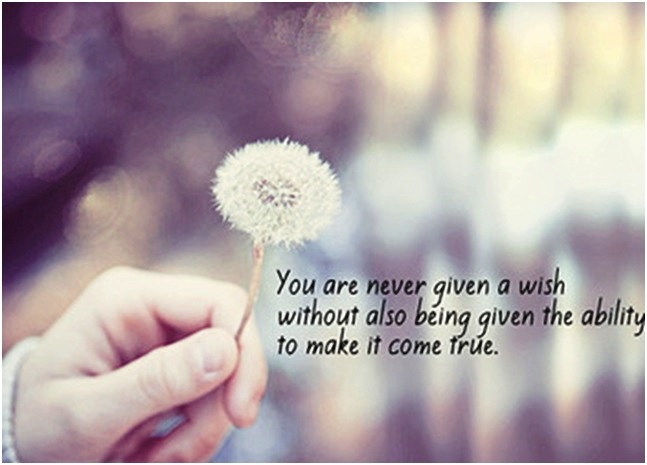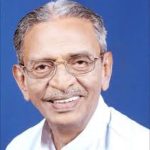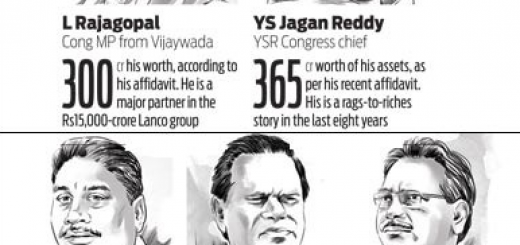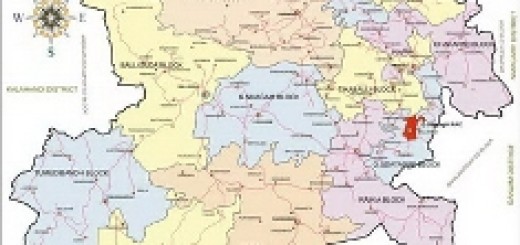Dump all beliefs, religions in Dustbin? To Know and not to Believe

Editorial by Yogi Indra, Speaking Tree, in TOI, 18 March 2017.
(Not e: To know is to see. Once one sees, the question of believing doesn’t arise. The fact is that all of us come into this world with an empty kitty of knowledge. Hence St. Paul asks: “What have you which you have not received and if you have received why do you glory as if you have not received?”
e: To know is to see. Once one sees, the question of believing doesn’t arise. The fact is that all of us come into this world with an empty kitty of knowledge. Hence St. Paul asks: “What have you which you have not received and if you have received why do you glory as if you have not received?”
So the struggle continues for everyone to know and see all that is there to know and see and the insistence of a Doubting Thomas: “ I must touch and see! to believe.” Equally the competition between persons also continues to acquire as much knowledge as possible to excel and share from one’s abundance which is the most exemplary and admirable thing to do among humans.
Simultaneously there is the urge in humans to become an encyclopedia of knowledge to wield power over other others who are ignorant, which is very much detestable. This competition to become “better than thou” happens in every field of human endeavour and achievement, which is the source of all conflicts, wars and fratricides, which only the truly wise know and avoid. Why? In the case of seeing and knowing the fundamental truth is nut-shelled in the Malayalam saying: “Vidya Dhanam Sarvadhanal Pradhanam, kodukkum thorum Eridum.” Knowledge alone is far superior to any wealth and it increases and multiplies when one generously shares it with those who don’t have it.
This is what Yogi Indira does in this article to know more and become less ignorant. This alone is the one motive and scope of CCV and everyone who writes in it: that is, to give wings to the pearls of wisdom one has discovered and to share it with the rest of the world. Commercial publications do it as a business, for a legitimate profit. We are not doing that on the “belief” that the giver of all good things will reward us in due time. That brings us back “to believe” or “not to believe but to know and see.”
This urge to know more and possess more all good things to share is the driving force of all true progress, while the urge to use everything one has acquired for one’s own self-gratification is the source of all evil, conflicts, wars, destruction in this world. “You will know the truth and the truth will make you free” Jn. 8 .32, the words of Jesus, is the driving force, or motto of our CCV. This in effect compels everyone of us both to believe in the possibility of the hidden truth and to be up and doing like a treasure hunter to discover that hidden truth.
How does it affect us in our practical daily life of knowing all that is needed to act rightly in our everyday lives? None of us will ever act, if we are to acquire all information about the pros and cons of every one of our actions. We have to live today and act now to live, to survive. So what are we to do? Every one is give enough light or knowledge needed by the giver of all good things (call him God or the Spirit within us). A fire-fly is given only a little light that it needs, not like the Sun which has to flood the world with its light. So it is with all of us.
We have to act today and now on the basis of the light we have, knowledge we have. What are we then supposed to do? Just do what your commanding conscience demands of you and be perfectly happy. But among the vast majority of believers what counts more is what the Pope, Pujari or Guruji says than this “know nothing” says. Hence, among Catholics they shout in support of whatever, right or wrong, the Pope say and shout down with contempt what a prostitute says, because the assumption is that only rotten things can come from the mouth of a prostitute and only truth from a pope. If so listen to what the retired Pope Benedict said:
“Above the Pope as an expression of the binding claim of church authority, stands one’s own conscience, which has to be obeyed first of all, if need be, against the commands and demands of church authority.” This was also what this “Know-nothing” learned when he was doing his doctorate in theology some 50 years ago in Rome, that is, to obey one’s “commanding conscience” to be upright before the God you believe in no matter which religion you belong to. james kottoor, editor)
Revisiting history and contemporary literature on disruptions, we’ll find that the underlying catalyst is disbelief in status quo.
The Buddha questioned the Vedic belief system that had become increasingly ritualistic, susceptible to misinterpretations which supported certain power structures. Martin Luther’s Protestantism essentially questioned existing belief systems of the Church. Bhakti-saint Meera questioned existing notions of love, patriarchy and marriage.
Disruptions in any sphere arise from a fundamental assault on existing institutions, power structures and beliefs. This spirit of questioning is born out of ‘knowing’. When the Buddha ‘knew’ that desire causes all sorrow and sorrows can be destroyed by overcoming desires, he became enlightened.
When Martin Luther ‘knew’ that the Church had become corrupt, he was able to nail the Ninety-Five Theses, a list of grievances against the Catholic Church onto the door of a chapel in Wittenberg, which changed the Christian world forever.
Only when Gandhiji ‘knew’ that Indian people could become free of colonial rule, not by military means but by their spiritual might manifested in Satyagraha, he was able to devise the most potent social and political reform movements, inspiring peoples all over the world to gain Independence.
Then, there is belief. Much of the bigotry and extremism that we see around us is due to misplaced beliefs; violence is essentially a conflict of beliefs. Imperialism flourished on the belief that it was the white man’s burden to ‘civilise’ non-whites. Dalits were exploited for centuries because some believed they deserved to be exploited because of their alleged karmic “deficiency”.
Similarly, war is nothing but a clash of beliefs where competing parties fight to establish their version of truth but not The Truth. All soldiers believe they are on the right side. Samuel P Huntington in ‘Conflict of Civilizations’ affirms that much of contemporary violence is a result of a conflict of civilizations that are nothing but belief systems.
At a spiritual level, the principle cause of bondage is belief in the existence of the world (which is an illusion). Akin to mistaking the rope for a snake, this illusion of reality distances one from Brahmn and causes misery. When we believe that this body is real, we fear disease and death; when we believe that our names and professions are real, arrogance or servility creeps in; when we believe that nations are real, we either become patriots or anti-nationals. The list of such beliefs is endless.
In the era of ‘Alt facts’, it can be potentially dangerous if the majority starts believing ‘facts’ which are not so harmonious.
The answer is to ‘know’ and not ‘believe’. One when ‘knows’, one realises that there are no ‘facts’ and logically, we can conclude that there are no ‘Alt facts’ either. When we ‘know’ nations and not ‘believe’ them, we can appreciate the functional utility of nations and not get carried away by ‘beliefs’ propagated by selfish power structures. When we ‘know’ religions and not ‘believe’ them we are able to appreciate that all of them say the same thing, but in different ways, and there is no cause for debate and disagreements.
Our spiritual traditions focus on one simple thing; to evoke the knower in us, for only then, can one become one with Brahmn, and know that the world is nothing but a ‘belief’. And all beliefs are nothing but distorted perspectives, not the Truth.
















